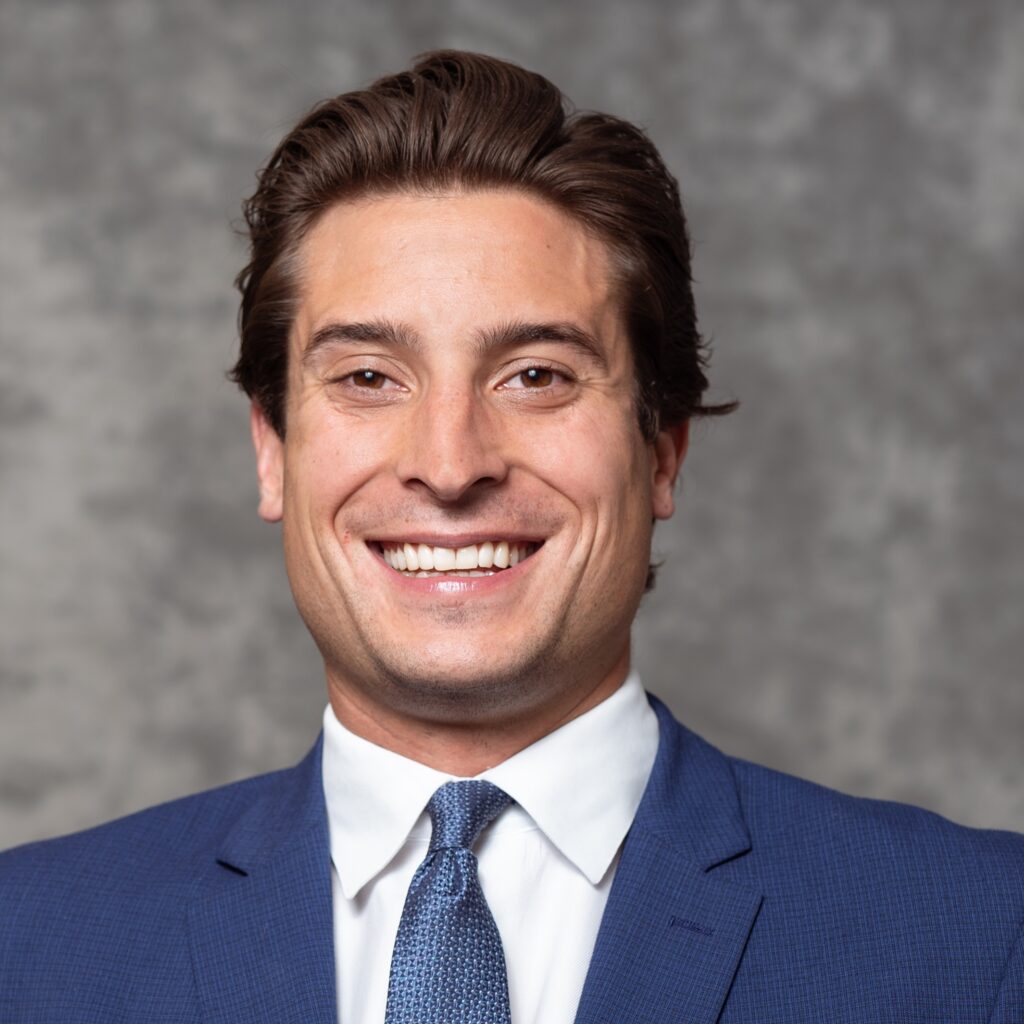 Vince Mancini’s goal when he started at Utah Law in 2020 was finding a legal job in the public interest sector—and when he graduated in 2023, his years of focus within this specialty paid off. In August, Mancini was hired as an honors attorney with the Consumer Financial Protection Bureau, a federal agency that ensures fairness within consumer financial markets.
Vince Mancini’s goal when he started at Utah Law in 2020 was finding a legal job in the public interest sector—and when he graduated in 2023, his years of focus within this specialty paid off. In August, Mancini was hired as an honors attorney with the Consumer Financial Protection Bureau, a federal agency that ensures fairness within consumer financial markets.
“Throughout my time in law school, I proactively worked with alumni, professors, and organizations dedicated to consumer-facing public interest law. I registered for relevant classes, led a student organization focused on social justice and consumer protection, and completed internships to gain hands-on experience in the field,” Mancini recalls. “This approach allowed me to build a strong resume that caught the attention of the CFPB, ultimately making me a fit candidate for their honors program.”
Mancini says he is passionate about using his law degree as a tool to address the growing wealth and socioeconomic divide in the United States, and the CFPB’s mission fits perfectly with those goals.
“My interest in consumer protection in the financial context is rooted in the belief that individuals from lower-income backgrounds face significant challenges and are often preyed upon by predatory bad actors in the financial industry. In a nation of abundant wealth such as ours, it is clear to me that individuals with lower incomes require more assistance than condescending advice to ‘pull themselves up by their bootstraps,'” Mancini says. “Instead, they need legal support to navigate a system that can grant them the same opportunities and rights as those in the top 1 percent. This realization inspired me to actively pursue opportunities aligned with my values.”
In his new role, Mancini helps to draft new rules, some that touch on legal issues due to technologically based ‘fintechs’ in the financial services sector, and meets with other financial regulatory agencies, such as the Federal Reserve, Federal Trade Commission, and Office of the Comptroller of the Currency (OCC).
“This interagency collaboration is invaluable because various financial agencies may enforce the same regulations and often collaborate closely to develop new rules,” he says. “Such insight and experiences allow me to constantly grow my legal knowledge and collaborate with experts in the field.”
Though he is excited to be part of the honors program, Mancini says his new position is also challenging because he is new to the field and there are few precedents to rely on.
“The rule-making drafting process demanded an in-depth understanding of the legal landscape and financial regulatory law, a commitment to staying up-to-date with evolving regulations, and the ability to anticipate potential legal challenges and objections that may arise,” he recalls. “It was a steep learning curve, but I believe I emerged from the experience as a more knowledgeable and capable attorney.”
Mancini is more tongue-in-cheek about other work challenges—he ripped his pants on his first day at CFPB and says he wishes he’d invested in a better pair— but notes that Utah Law faculty’s flexibility helped him to prepare for his role as honors attorney.
“During my 3L year, I had the invaluable opportunity to extern at the National Consumer Law Center in Washington, D.C., a top consumer advocacy organization. Dean Louisa Heiny, who is the absolute best student advocate out there, worked with me to come up with a plan that ensured I stuck to the curriculum while granting me the ability to do remote work before I graduated,” he says. “Taking Professor Christopher Peterson’s consumer law class enriched my understanding of the field and allowed me to learn from one of the best consumer attorneys in the country, which fueled my passion to start a career in consumer law.”
As a finance major before starting law school, Mancini says his undergraduate degree didn’t require much writing—so he appreciated extra help from Professor Leslie Culver in that area.
“Professor Culver’s legal writing class, and her mentorship while I was her legal writing teaching assistant, took me from being a novice writer to a strong writer who felt confident in my work,” he says. “These experiences and the knowledge gained have been instrumental in my role as an honors attorney, where I work on rule proposals that leverage my prior consumer advocacy experiences and complement them with the legal skills and knowledge I gained at S.J. Quinney.”
Mancini also recalls working at the front desk in the law building and interacting with classmates and professors as they entered and left the school.
“What I liked best about Utah Law was the strong sense of community. In my conversations, I was continually inspired by the accomplishments and motivations of my peers,” he says. “Hearing about their passions and work energized me and reinforced my own commitment to a public interest career.”
Passionate about addressing inequities that persist within law, Mancini says he wants to bridge the gaps and ensure everyone can access and protect the rights the Constitution affords them.
“The law, in its essence, is a powerful tool that should be accessible to all, regardless of their financial means. However, the reality often falls short, with only those who can afford top-tier law firms benefiting fully. This leaves a significant portion of Americans at a disadvantage when it comes to exercising and defending their constitutional rights,” he says. “I really love the consumer-focused work I am doing with the CFPB. If I could have a career working to defend the financial rights of consumers against bad-actor financial entities, then I would be a happy fella.”
This profile was originally published in the fall 2023 issue of Res Gestae.
